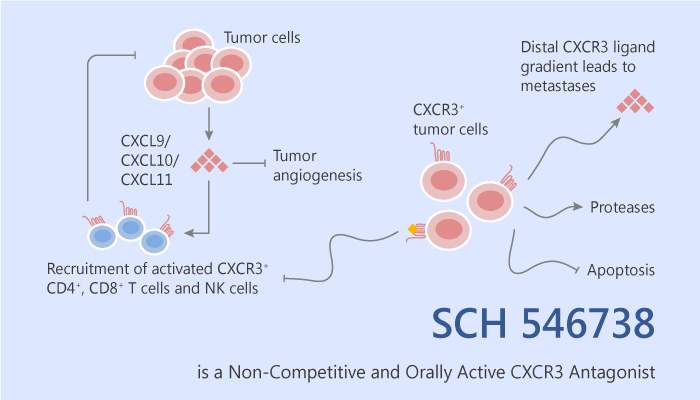In our previous blogs, we have mentioned autoimmune disease many times. There are various types of autoimmune diseases, such as rheumatoid arthritis, inflammatory bowel disease, multiple sclerosis and psoriasis. The factors that cause such diseases are multiple, and it is difficult to find out the exact way to cure the diseases.
In order to figure out the relationship between certain disease and signaling pathway, researchers underwent numerous experiments. Through their efforts, we know that CXCR3 involves in inflammatory response. It is a potential target to treat autoimmune diseases.
Many CXCR3 antagonists are reported to reduce inflammation and inhibit lung metastasis in animals. These compounds have excellent performance in the inflammatory research. Herein, we are going to talk about another CXCR3 antagonist, SCH 546738.
SCH 546738 is a potent and non-competitive CXCR3 antagonist, with high affinity. SCH 546738 inhibits [125I]hCXCL10 binding to CXCR3 of human, monkey, rat, mouse and dog origin, with IC50s of 0.8, 1.3, 4.2, 5.9 and 6.4 nM, respectively.

According to the high affinity of SCH 546738, it also significantly inhibits T cell chemotaxis induced by CXCR3 ligands. However, SCH 546738 shows no effect on that induced by CCR7 ligand.
Except for the great potency in vitro, SCH 546738 is orally active, and also exhibits potent activity in vivo. The antagonist reduces disease in experimental autoimmune encephalomyelitis. Besides, it delays graft rejection, permits permanent engraftment in the rat cardiac allograft transplant in combination with cyclosporine.
References:
1. Jenh CH, et al. BMC Immunol. 2012 Jan 10;13:2.